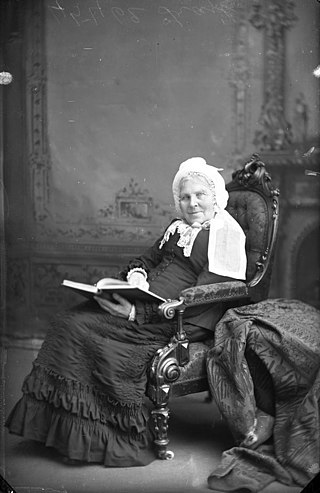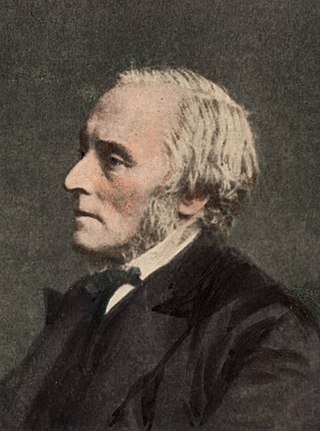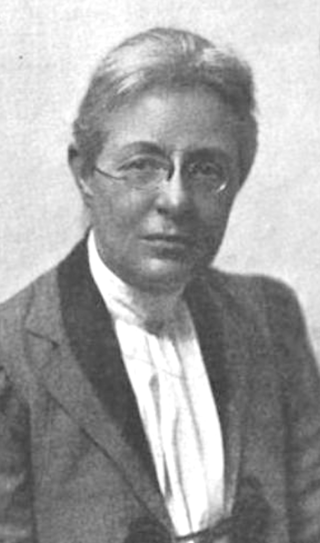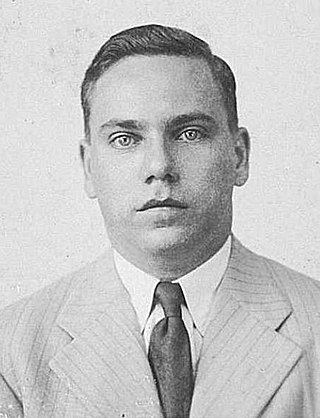
Catharine Parr Traill was an English-Canadian author and naturalist who wrote about life in Canada, particularly what is now Ontario. In the 1830s, Canada covered an area considerably smaller than today. At the time, most of Upper Canada had not been explored by European settlers.

Dominick Edward Blake, known as Edward Blake, was the second premier of Ontario, from 1871 to 1872 and leader of the Liberal Party of Canada from 1880 to 1887. He is one of only three federal permanent Liberal leaders never to become Prime Minister of Canada, the others being Stéphane Dion and the latter's immediate successor Michael Ignatieff. He may be said to have served in the national politics of what developed as the affairs of three nationalities: Canadian, British, and Irish. Blake was also the founder, in 1856, of the Canadian law firm now known as Blake, Cassels & Graydon LLP.

Havergal College is an independent day and boarding school for girls from Junior Kindergarten to Grade 12 in Toronto, Ontario, Canada. The school was established in 1894 and named for Frances Ridley Havergal, a composer, author and humanitarian.

Huron University College is a university college affiliated with the University of Western Ontario in London, Ontario, Canada. It was Incorporated on the 5 May 1863. Huron is the founding institution of the University of Western Ontario.

Adam Crooks, was an Ontario Member of the Legislative Assembly of Ontario for Toronto West from 1871 to 1874 and moved to the riding of Oxford South from 1875 to 1886.

Harriet A. Roche (1835–1921) was a Canadian author. Harriet, her sister, and her mother first came to Canada from England in 1851, after Mrs. Mills accepted a teaching position in the Red River Colony.

The Literary and Historical Society of Quebec (LHSQ) was the first historical society, and one of the first learned societies, in Canada. It was founded in 1824 by George Ramsay, Earl of Dalhousie, governor of British North America. Its headquarters are still located in Quebec City.

The history of Upper Canada College (UCC), located in Toronto, Ontario, began with its founding in 1829.

Isaac Hellmuth, second Anglican Bishop of the Diocese of Huron, was the founder of Huron University College and the University of Western Ontario, one of Canada's leading universities. He was also founder of Hellmuth Ladies' College and Hellmuth Boys' College, both now defunct, formerly of London, Ontario.

George Templeman Kingston (1816–1886) was a Canadian professor, meteorologist, author, and public servant. For successfully promoting and organizing one of Canada's first national scientific services, Kingston has been called the father of Canadian Meteorology.
The Most Rev Charles Allen Seager (1872–1948) was Anglican Bishop of Ontario, then Huron and finally Metropolitan of Ontario in the 20th century.
Timeline of jazz education : The initial jazz education movement in North American was much an outgrowth of the music education movement that had been in full swing since the 1920s. Chuck Suber (né Charles Harry Suber; 1921–2015), former editor of Down Beat, averred that the GI Bill following World War II was a key impetus for the jazz education movement in higher education. During the WWII, the U.S. Armed Forces had been the nation's largest employer of musicians – including women musicians. After the War, many of those musicians sought to pursue music as a career, and, with assistance of the GI Bill, found colleges offering curricular jazz. Suber also pointed out that the rise of stage bands in schools was directly proportionate to the decline of big name bands.

Eliza Jane McKissack was a music teacher who, in 1890, became the founding head of music at the University of North Texas College of Music, then called Normal Conservatory of Music, part of Texas Normal College and Teacher Training Institute, which was founded in 1890 as a private institution. The College of Music, today, is a comprehensive school with the largest enrollment of any institution accredited by the National Association of Schools of Music. It is the oldest in the world offering a degree in jazz studies. Since the 1940s, the College of Music has been among the largest in the country.
Boscobel College for Young Ladies was a college in Nashville, founded in 1889 as the Nashville Baptist Female College by the Tennessee Baptist Convention. The college operated for twenty-five years — until 1916. One of its founding objectives was to provide the lowest possible cost for higher-education of young women.
The American Institute of Applied Music was a music school based in New York City. The Institute was incorporated in 1900 as an amalgamation (merger) of the following educational institutions:
- The Metropolitan College of Music
- The Metropolitan Conservatory of Music
- The Synthetic Piano School, and
- The American Institute of Normal Methods
James P. Aykroyd was an early American composer, arranger, and music educator of piano, organ, and voice in New Bern, North Carolina, Raleigh, North Carolina, and Nashville, Tennessee. He also owned a general store — first in New Bern, then in Nashville — selling dry goods, groceries, sheet music, and musical instruments – including pianos. In New Bern, Aykroyd was the organist and choir director at the 1824 dedication of the then newly constructed Christ Episcopal Church.

Kate Sara Chittenden was an American professor of music, music school founder, and piano teacher.

Adolfo Odnoposoff was an Argentine-born-and-raised cellist of Russian ancestry who performed in concerts for 5 decades in South, Central, and North America, the Caribbean, Europe, Israel, and the former USSR. He had performed as principal cellist in the Israel Philharmonic and many of the important orchestras of Latin America. He had soloed with major orchestras under conductors that include Arturo Toscanini, Erich Kleiber, Fritz Busch, Juan José Castro, Rafael Kubelik, Victor Tevah, Luis Herrera de la Fuente, Carlos Chavez, Paul Kletzki, Luis Ximénez Caballero (es), Willem van Otterloo, Sir John Barbirolli, Eduardo Mata, Antal Doráti, Jorge Sarmientos (es), Erich Kleiber, George Singer (1908–1980), Ricardo del Carmen (1937-2003), Anshel Brusilow, Pau Casals and Enrique Gimeno. He also performed a Khachaturian work under the direction of Khachaturian.

William G. Boericke was an Austrian-born American physician and ardent, influential exponent of homeopathy. He is known in the field today as the compiler and editor of the Pocket Manual of Homeopathic Materia Medica. The ninth edition has endured as his most re-published version partly because of its then final inclusion of a mini-repertory by his brother, Oscar Eugene Boericke, MD, also a homeopathic physician.
The Dufferin Medal was a Canadian award instituted in 1873 by the Earl of Dufferin — Canada's third governor-general who served in that role from 1872 to 1878. The Dufferin Medal was an official British commendation to Canadian students and athletes who had achieved high excellence in academics and athletics. Lord Dufferin and Lady Dufferin presented the medals to honorees, annually, through the end of their appointment in 1878. Dufferin Medals were the forerunner to Governor General's Awards. While gold, silver, and bronze denoted first, second, and third, acknowledgement in biographies often only reference the "Dufferin Medal". Gold medals in proficiency categories — where competition was not involved — were rarely awarded.














